Miles Heizer Talks Netflix’s ‘Boots,’ Max Parker — and That Ending
The actor discusses his queerness, the Marines, the emotional toll of Boots, and why he’s ready for a season two.

Miles Heizer wants to clear up a rumor about him that seems to be picking up steam lately.
“It’s not real. And I don’t know why people think that,” the actor states pretty emphatically, though clearly with tongue in cheek, aware there are worse things people could make up about him.
For, while Heizer most definitely, factually was born in the state of Kentucky, he has not, as several sources have erroneously reported, ever been named a Kentucky Colonel, that coveted honorary title bestowed by the governor to individuals “for noteworthy accomplishments and outstanding service to our community, state, and nation.”
So, a few minutes into our Zoom call to discuss his new Netflix series Boots, Heizer has already dashed the images in my head of Kentucky’s liberal Governor Andy Beshear pinning this native son with the state seal in recognition of his performance as fierce, murderous bisexual Alex Standall on four seasons of Netflix’s 13 Reasons Why.
“Nope,” says Heizer. “And I’m disappointed. I would like to become one now, but I don’t know.”
Certainly, Heizer’s noteworthy work onscreen — in series 13 Reasons Why and Parenthood, and in films like Rails & Ties and Love, Simon — has earned him accolades and success. And his visibility off-screen as an out LGBTQ actor in Hollywood has earned him respect and prominent roles in a Pride campaign for Coach and as a “cultural remixer” for Gap.
The Colonels still could come calling. “Yeah, we’ll get there one day,” Heizer surmises. That day might arrive sooner rather than later, thanks to Heizer’s intense turn on Boots, a one-hour, 1990s-set series, created by Andy Parker and based on Greg Cope White’s memoir The Pink Marine.
Heizer stars as Cameron Cope, a closeted gay teen who enlists in the U.S. Marine Corps, partly to escape his family led by prevaricating mom Barbara (Vera Farmiga), and partly to stick beside his best friend Ray (Liam Oh), the son of a decorated Marine.
Season one follows Cameron and Ray’s struggles through boot camp in steamy Parris Island, South Carolina — particularly Cam’s clashes with one of their drill instructors, relentless hardass Sgt. Sullivan (Max Parker), who, like Cam, also happens to be hiding something. They’re not the only ones, Heizer points out.
“I think the actual story is that all these people come into this thing and Cameron’s sort of the easiest one where we can see what he’s hiding because the stakes are very high, it’s illegal,” he says, noting that pre-DADT military policy meant LGBTQ individuals could not openly serve. To be outed was to be immediately and dishonorably discharged.
“The stakes are inherently high because of that,” Heizer continues. “But the reality is that every recruit is also hiding something or afraid that something about them might find them in a place where they don’t belong.”
In that sense, the series isn’t really about Cameron’s sexuality, or coming-of-age as a gay soldier. It’s about him forging the version of himself he most wants to be, and in this moment, he wants to be a Marine. Or he thinks he does. Yet, he can’t be a Marine and live his truth as a gay man. So he hides his truth.
“I think the actual arc of the story is that we all have something that we’re hiding,” says Heizer. “And when we’re able to get past that and realize that we’re just people, we have the capability to come together and connect.”

METRO WEEKLY: I just finished the show. It has quite a kick of an ending. Which, of course, I won’t spoil in this story. But just curious, what do you think about how the first season ends?
MILES HEIZER: To me, my prayer is that it ends begging for a season two. I would love to do this show until I can’t walk anymore. So that’s my hope. I think that I love the ending. That’s my favorite episode. I feel like the show culminates in such a satisfying way. By the end of it, you really care about all the characters and, I think, want to see what happens to them next. So I’m hoping for more Boots.
MW: Logistically, where did you shoot and how long did it take?
HEIZER: We shot in New Orleans in the summer. It’s probably the hottest place I’ve ever been. We started in the summer of 2023, and then took a huge break for a year through the strikes, and then they were sort of reworking some things to the scripts, and then we came back the next summer and finished. So it actually ended up taking two years, which sort of serves as the reason why we all got so close. We’ve actually known each other for such a long time, and one of the other boys keeps saying this, but because it took so long, watching it almost feels like looking back on this long past memory just because it took an abnormally long time for a TV show.
MW: You all boot camped together. How much boot camp did you really do?
HEIZER: Before we started shooting, there was this two-week period where we were lucky enough to have three military advisors on set with us literally at all times. They would run us through what we had to learn obviously for filming. But there was this two-week period where they did this sort of intensive [boot camp training]. But Liam Oh, who plays Ray, and myself were I guess you could say fortunate. We were shooting all of our flashback scenes, when we have hair, so we actually missed that.
That being said, they did privately with us go over the important things. But boot camp sort of starts off, everyone’s going into it pretty blindly. So at the beginning, I think it was actually sort of beneficial for me at least to not really have had that time with them and to actually go into it not really knowing what I was doing. But throughout the show, each episode sort of covers a different part of boot camp and we would have time cut out for us to learn what we were doing for the upcoming episodes.
MW: Did you actually do the shooting range? Did you shoot live rounds, and had you ever fired a gun before?
HEIZER: We shot blanks, but pretty much, I would say essentially everything you see us doing, we actually did, save for a few things where there were safety concerns — we would have doubles for big fight scenes or something.
There’s a scene where I get knocked off of my feet, flying through the air, and that was not me. That was Jade, my stunt double. But yeah, we were doing all of it. I had fired a gun before, but only on television. I was in a show called Parenthood and I went to a firing range on Parenthood, which makes no sense, but I did.
MW: Prior to becoming an actor, had you ever considered joining the military? I feel like probably not.
HEIZER: No, it definitely was not something that I saw myself doing. But I think that with this show, what I love about it — and, you know, it’s inspired by Greg Cope White’s memoir, The Pink Marine — is that he didn’t see that for himself either. It really was like, he was this gay teenager who was comfortable with his identity. That wasn’t really part of his struggle at that time in his life, but he had this best friend who loved him and uplifted him. And in this sort of impulsive moment he is like, “I would rather be with my best friend who loves me than stay behind with my family, who’s not really uplifting me.” And so he just made this impulsive decision and ultimately it was very tough, but ended up learning a lot about himself and what he’s capable of, and connections he’s capable of having that he never thought he would. But yeah, that was never something I considered. I was acting since I was a kid, and that was always sort of my path, I think, doing something creative.
MW: What was it about acting that you were so convinced so young?
HEIZER: Honestly, I have no idea. I feel like all kids are like, “I wanna be an actor.” I remember watching School of Rock and being like, “I want to be in School of Rock.” I feel like that was the catalyst for me. And then I was fortunate enough that my mom allowed me to pursue it locally in Kentucky, and then we ended up in L.A. It’s such a blur to me. I’m very grateful that she let me do that and pursue something that I was actually interested in that was sort of a non-traditional path.
MW: I’m from Kentucky too, so I have questions in that realm.
HEIZER: Wait, which part?
MW: I’m from Louisville, born and raised.
HEIZER: I was born and raised in Lexington. I guess we’re like mortal enemies.
MW: You know what? I don’t keep the Cards-Cats stuff that close to me.
HEIZER: Me neither.
MW: I mean, obviously I’m a Cardinals fan.
HEIZER: Yeah, I was never interested in sports.
MW: Did this experience at all alter your opinion of those who serve or the military in general?
HEIZER: Definitely. I mean, obviously I’ve always had nothing but respect and reverence for veterans and people that serve in the military, but I think, especially as a gay person, we have this sort of preconceived notion about what a Marine looks like. It’s traditionally this sort of hypermasculine field, and I hadn’t really spent a lot of time with service members or veterans. And having these military advisors on set, I think for me really broke down and shattered a lot of ideas that I might have about someone that would choose to do something that I perceived as this super masculine thing.
They’re truly the most lovely, caring, kind people. And one of our advisors [Leon Ingleright] actually was discharged from the Marines when he was found to be gay. And one of our other advisors served with him, Sammy, and it was really eye-opening to even see Sammy’s reaction to that and how disturbed he was when that happened. And how everyone around them was really not supportive of [Leon] losing all of his accolades, literally his health insurance, everything, just because of this little thing about him.
I think for me, it definitely changed my perspective a little bit. And I think the show sort of mirrors that, where when you’re put in these situations where you spend a lot of time with each other and are able to get past things you might think about someone just based on where they came from or their lifestyle. It’s like we really all can connect on this human level.
To this day I get calls from one of them, Travis, and he is like, “Just checking in, we’re Marines. This is what we do.” They’re the most loving, caring people. And I think that to be willing to make presumably this unimaginable sacrifice when you choose to enlist is extremely, extremely respectable. These people are fighting for not just their freedom, but all of our freedom. And I genuinely think that most of the service members have this mutual respect for each other and don’t care about your sexuality or your gender. I genuinely believe that to be true, and I have nothing but so much respect for all of them.

MW: So we talked about Greg White’s memoir. Were there any other inspirations that you used or found. Did you watch Full Metal Jacket or Platoon? Were there other stories or characters that came to you?
HEIZER: This is the most Cameron answer. Quite the opposite, I literally watched Golden Girls because going into it, I’m like, “Cameron doesn’t know what boot camp is. He’s unfamiliar.” The only thing I really have to go on is that he loves Wilson Phillips, which is deep in my history. I have loved Wilson Phillips for such a long time, and Golden Girls, which I had seen sort of in passing, but never really sat down and watched. So, especially at the beginning, I would just go home and watch Golden Girls. And I must say, it’s such an incredible show and feels so modern in a lot of ways. It’s so smart and witty and funny. I was like, “I’m obsessed.”
MW: You mentioned the music, Wilson Phillips, they play, oh God, the Wilson Phillips song…
HEIZER: “Hold On.”
MW: “Hold On” in the final episode. But throughout, the ’90s soundtrack was really hitting for me. “Waiting For the Night to Fall,” the Depeche Mode. That was such a great moment. So you were young in the ’90s, but I guess a lot of the ’90s stuff still hits for you, it’s relevant to you?
HEIZER: Oh yeah, for sure. I mean, I love music and I’m very familiar with ’80s, ’90s, ’70s music. For us, when we were filming the show, because of the heat in New Orleans and some of the physical tasks, we ended up feeling like a lot of the stuff we were filming was really serious or harrowing and hard. And watching the show, I think the music in particular really shifts the tone to where a lot of it’s funny or light or fun. And it was actually really fun to watch the show and be like, “Wow, we thought we were filming a dramatic sequence on the obstacle course” and it’s actually sort of a comedic, humorous moment. The music plays a huge part in that.
When I watched it the first time, I was fortunate to watch at the Netflix office, and I had the sound blasting, and the music, I think it’s truly a character in the show. It’s so good, and I think it really creates the world of the show. I know they were very specific about not using any music that came out post-1990. They wanted it all to be very time-specific. It just makes the show sort of unique, especially for a boot camp setting. It’s really not like any other military or boot camp show.
MW: Have you ever, like Cameron, found yourself in an environment where you could not be your whole self?
HEIZER: Oh yeah, for sure. I mean, I started acting when I was ten, which is obviously mortifying and strange, but I guess I’ve been doing this for 20 years, and growing up, I spent so much time, especially as I got older, fearful that me being gay would hold my career back in some capacity. When I was younger, it really was out gay actors sort of got pigeonholed, or people that played queer characters, gay actors playing gay characters, they were sort of put in this box and there really wasn’t much queer content out there. So I had a lot of fear. I even talked to my representation about it as I got older — “What do I do?” And we tried to navigate how to approach that.
It really is wild, even in just the last five years, how much the entertainment industry has changed, and the fact that there are roles for gay people and that we’re more open to hiring gay people to play straight parts. It’s pretty mind-blowing to me that I would ever have this opportunity when I think back growing up and how much fear I had about my identity and how that would affect me. To be able to be on a TV show on Netflix, this massive streamer is just so crazy. And I hope that the industry continues in that direction. Yeah, that’s my prayer.
MW: There’s an aspect of the show that we haven’t talked about: the inner Cameron. The show also deals with him protecting that soft, inner side of himself. I’m wondering about your approach to playing it. I mean, I read it as that’s Cameron’s inner gay.
HEIZER: Right.
MW: For you, what is that? Who is inner Cameron? Is that who he would be if he weren’t a Marine, I guess?
HEIZER: Yeah. I think his inner voice is the truth-teller, who’s sort of acknowledging the absurdity of the situation at times. And for me, I certainly have an inner voice that is often gay, a gayer inner voice. In a way, that’s sort of how I approached it. I think we wanted there to be this differentiation of the inner voice as a truth-teller, but also more confident and not nearly as afraid as the outer voice. Those were the most difficult days for me shooting just because it was very overwhelming to do this theoretical scene with myself. We were fortunate, I had a double, Matty, who was there for all of them. So any of the over-the-shoulder shots you see, it’s him. And we had a routine worked out of running through the scenes ahead of time so that he could sort of try to imitate my body language so it would match.
But then there’s these split-screen moments where you see two of Cameron on the screen and those were like, no one was there. I was just looking at nothing doing the lines. So I was very nervous how those would turn out. And yeah, it’s pretty odd and surreal to see you do a scene with yourself. The first time I saw it, I was like, this is very strange.
I think that we wanted there to be this sort of obvious differentiation between the two, and as the show goes on, to culminate in Cameron looking at that inner voice and having to make this decision about his future. It served as a storytelling tool in that way. And it’s fun for me. I think we try to think of what is the character thinking inside or whatever, and I’m like, I have it written on paper.
MW: It was a fun character. And it occurs to me looking at you now that everybody publicly would know whether you’re shooting based on how much hair is on your head.
HEIZER: Right. For sure.
MW: So how did you enjoy walking around bald?
HEIZER: Bald as hell. The moment of shaving our head was serving as this “We made it” symbol, of if we can get to the head shaving, once we do that, we’re in it, we’re off to the races. So it was actually a really exciting moment for all of us. I will admit before it, I was combing my hair back in the mirror and I’m like, “Yeah, that looks hideous. It’s gonna be tough.” But once it came off, we all actually were like, “Wait, it kind of looks good.” And it’s very freeing to have no hair. You don’t have to worry about what you look like. You can wash your hair — if that’s what we’re calling it — in 10 seconds, you can feel the wind up there. I didn’t realize that you could feel the wind on your scalp. It was actually really fun. But yeah, walking around outside of work, I feel like in our costumes it looks pretty chic in our camos, and there’s something about it, it works. My personal wardrobe is not ideal for a bald person.
MW: Why is that?
HEIZER: I have sort of baggy vintage skater clothes and my head just looked tiny in all of my stupid clothes. I think it’s also having no facial hair. But it is weird with the boys over this two-year period of time, we pretty genuinely only saw each other completely bald in three different outfits. So it’s sort of scary to see some of them now with a full head of hair and some cool street-wear outfit. I’m like, “I don’t know this person.”
MW: Speaking of which, I just remembered too about Max Parker, being a totally different person from his character. I had no idea he was British. He did a great job with the accent, and the rapport between Cam and Sullivan is, for lack of a better word, weird but absolutely fascinating. How would you describe what’s going on between Cam and Sullivan?
HEIZER: I feel like Cameron’s arc really does end up centering around Sullivan. I think going into it, he views him as this sort of ideal of what he would like to be. He sees him as this confident person who demands respect, and I think that’s something that Cameron has just never had growing up. And so when he sees him, I think that he looks up to him in a lot of ways. And as the show goes on, Sullivan also is drawn to Cameron for a very specific reason. I think he also sort of sees himself in Cameron and ultimately wants him to quit because he doesn’t want him to go through what he went through.
And as the show progresses, their relationship changes and reverses in a weird way by the end, and Sullivan actually ends up being this sort of warning sign to Cameron. I think it really shapes his entire journey at boot camp. Those were definitely some of my favorite scenes to shoot, just because there’s so much chaos — in the boot camp, there’s 50 people literally in every single scene, there’s a lot going on — and it was very nice to have these moments with Max where we’re just the two of us having conversations. It definitely changed the energy of the scenes and I think is the pivotal point for Cameron’s arc.
MW: Actually, I’m also reminded of a scene with him, you’re carrying another soldier through a swamp. What was the hardest thing to do on this shoot?
HEIZER: It’s so funny because when you see it, there are all these things that look very physically demanding and difficult, and those were randomly not. They were fun. The obstacle course was fun. Climbing a rope, I didn’t realize there’s an extremely easy way to loop your foot around the rope to where climbing a rope is like walking down the street. It’s so easy.
The things that were really hard were literally standing at attention all day because you’re flexing every muscle in your body for hours and hours. Those were the days where the next morning I’d wake up super sore. I’m like, Jesus, every muscle was working yesterday.
There’s also a scene in the first episode where we’re holding our rifles out in front of us at a 90-degree angle and then lowering them to the ground. And Max has this huge monologue in that scene. And so I think we had full day of his arrival, and we were doing that and that was the hardest thing for me. And you can see when you watch it, people’s arms are quivering very involuntarily because it was just really difficult. But yeah, you probably wouldn’t think that watching it.

MW: That did look like a tough part of boot camp life in general. Do you get back to Kentucky often or at all?
HEIZER: Yeah, I still try to go back. I’m actually trying to plan a little trip soon because all my family lives there. My extended family, just my mom, my sister and I moved to L.A., so yeah, I try to go back and see everyone. They come to L.A. a lot. I feel like it’s more of a vacation spot for them, so I definitely see them because they come to L.A. Yeah, I would like to go back soon. I have my restaurants — I miss Ramsey’s.
MW: We talked about the fact that this season doesn’t deal with romance. If there’s a second season, would you like to see a romance for Cameron?
HEIZER: I would love to see a little romance. It doesn’t work out for him season one. I think that would be something that would be interesting to explore, especially in the world of the show and at the time in history, that would be interesting for me to explore for Cameron. But yeah, I guess there’s no way to find out until they write it.
MW: And what about exploring your own romantic life? Do you want to let people know if you’re single, looking, or not looking at all?
HEIZER: Oh, my Lord. I’m single. I am, to be honest, not looking. But yeah, I’m just sitting at home. I have two dogs and I like ceramics, and that’s fulfilling enough for me at the moment.
All eight episodes of season one of Boots are available to stream on Netflix. Visit www.netflix.com.
Support Metro Weekly’s Journalism
These are challenging times for news organizations. And yet it’s crucial we stay active and provide vital resources and information to both our local readers and the world. So won’t you please take a moment and consider supporting Metro Weekly with a membership? For as little as $5 a month, you can help ensure Metro Weekly magazine and MetroWeekly.com remain free, viable resources as we provide the best, most diverse, culturally-resonant LGBTQ coverage in both the D.C. region and around the world. Memberships come with exclusive perks and discounts, your own personal digital delivery of each week’s magazine (and an archive), access to our Member's Lounge when it launches this fall, and exclusive members-only items like Metro Weekly Membership Mugs and Tote Bags! Check out all our membership levels here and please join us today!








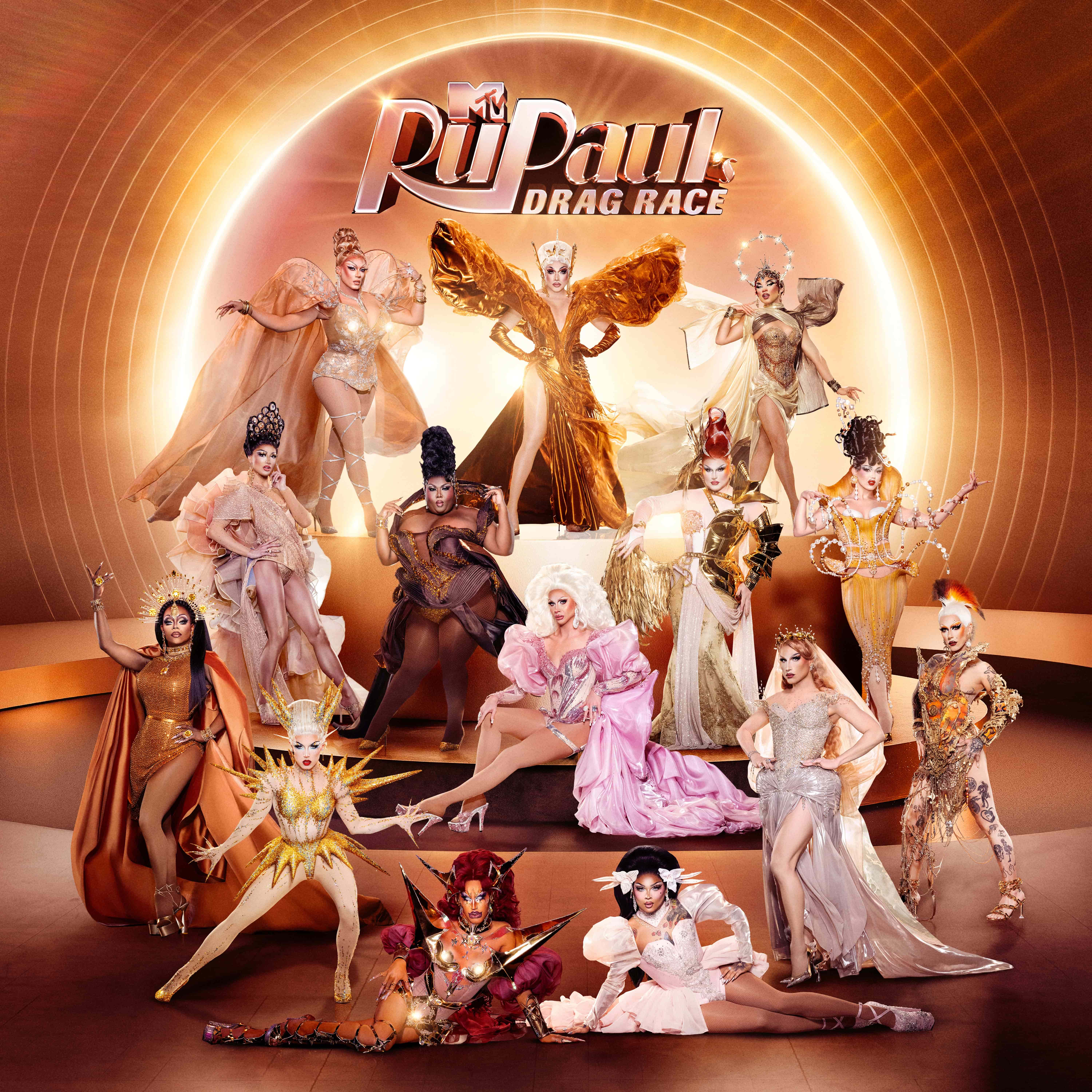
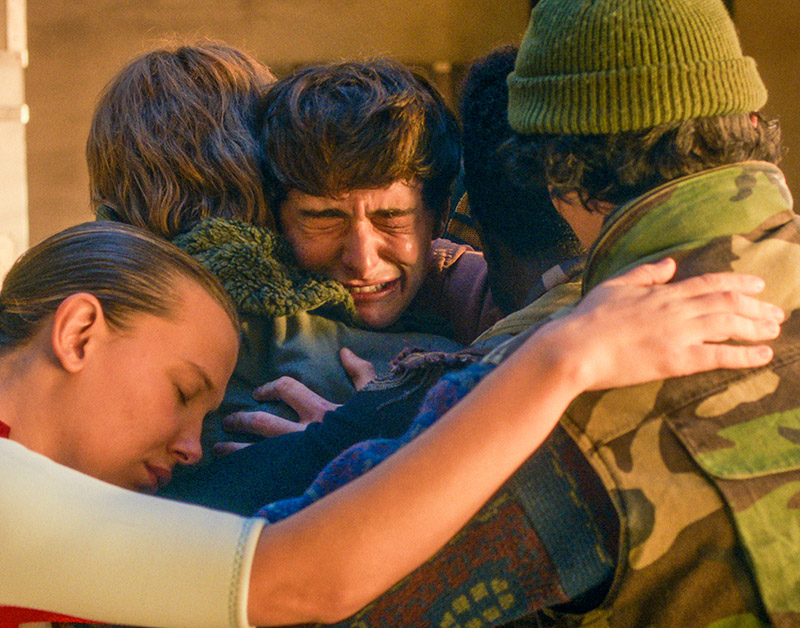













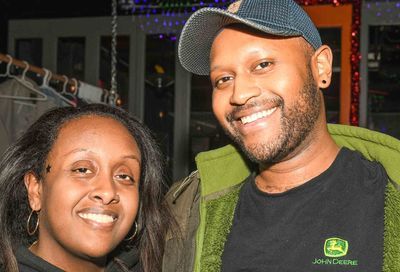
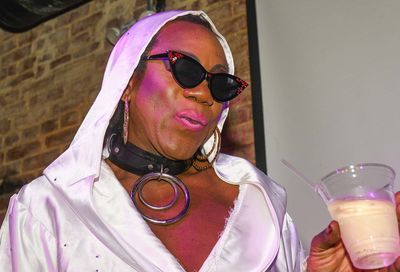
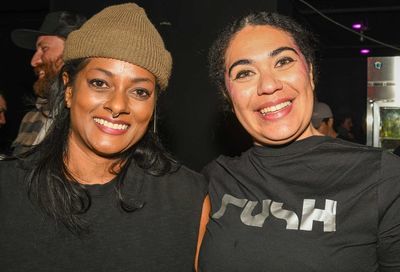
You must be logged in to post a comment.